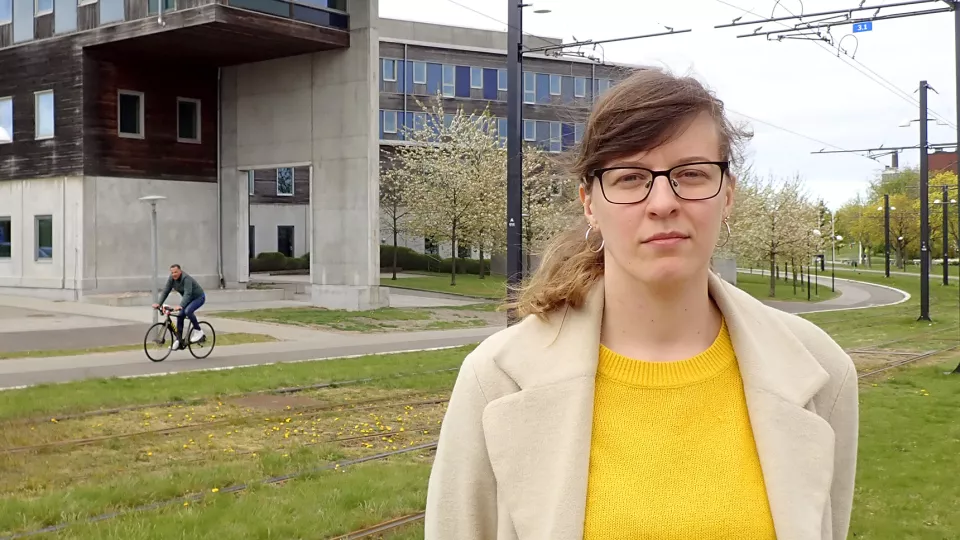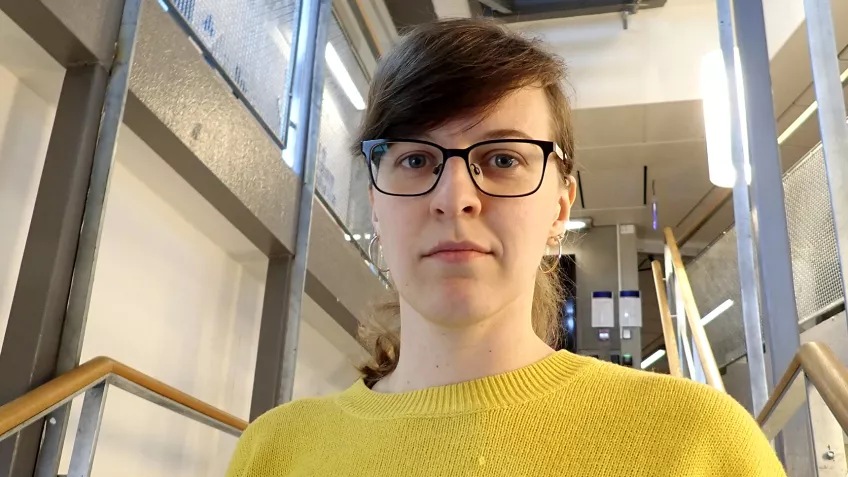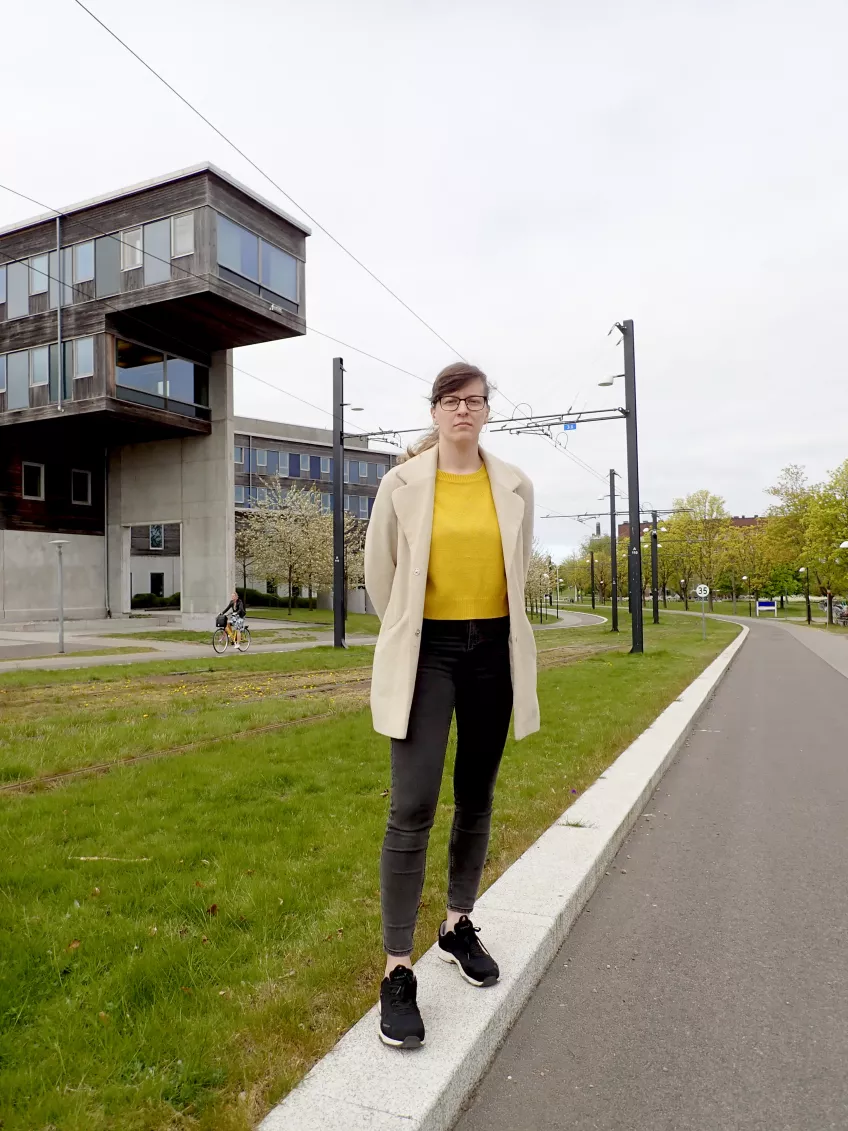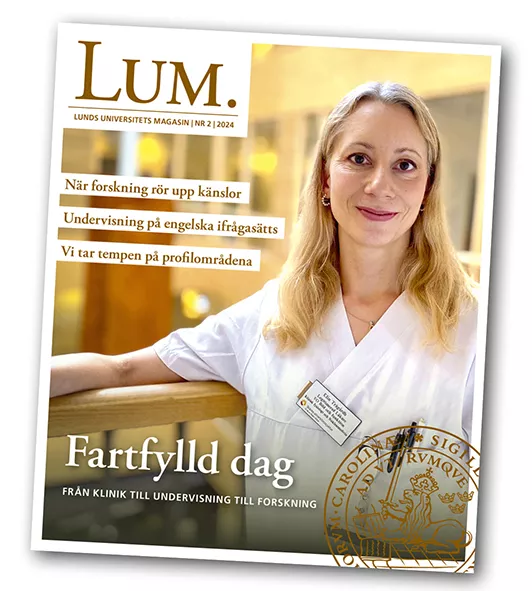The first thing Yulia Vakulenko says when she meets me on the staircase of her workplace at the Ingvar Kamprad Design Centre, IKDC, is that her sorrow is nothing compared to what the people of Ukraine are being subjected to. At the same time, she wants to explain how she, as a Russian, reacted to the invasion and the war, and how she has been treated by colleagues as well as people she has never met before.
“I have been met with so much love and the support from the University has been excellent. I can see that they really care.”
Yulia Vakulenko came to Kalmar through a student exchange program in 2010. She came to Lund and Lund University in 2015. Today she is 32 years old, employed as a postdoc, and has two five year old twin boys.
Following the invasion, she laid blame on herself. She knows it is wrong, but the feelings of guilt overpowered her in the first few weeks. All because she was born and raised in Russia.
“I wanted to do something so I bought a ticket to Poland. I wanted to help the refugees.”
The trip to Poland never took place. She was persuaded not to go. In hindsight, she realises that was right.
The refugees are part of her life
The big turning point came when she got in contact with a relief organisation in Helsingborg that acts as a bridge between Ukrainian refugees and Swedish society. Part of the work focuses on informing and explaining how things work in Sweden. For Yulia Vakulenko, a lot of the focus is on explaining what applies regarding education and work.
“They ask whether they can study and whether they can work and what pathways exist. Many refugees are also afraid that families will be split up and placed in different parts of the country. We have helped some of them to find housing,” she says.
However, it is not just practical help that refugees need.
“Many have come alone, and they need a friend. They have become a big part of my life. I meet refugees every week, sometimes every day. They have my phone number, and we keep in touch on social media.”
Does not fly the Russian flag
The Western sanctions against Russia are directed at Putin and those close to him, among them a large number of oligarchs. Yulia Vakulenko says that, despite the severity of the sanctions, the super-rich view them more as a westerly breeze. However, the general public is affected, and in the long term, Russian society is in danger of being hurled back many decades in time. One example concerning Russians is that transfers of money from Russia have largely been stopped, something that affects Russians studying at Lund University. Not Yulia Vakulenko, however, who is an employee.
“I have not been affected by it. I also cannot say that I have been treated badly anywhere, although I am not exactly walking around town flying the Russian flag either,” she says.
Her mother is the only close relative she has. She lives in the small town of Naryan-Mar, where Yulia Vakulenko grew up. She is not afraid that her candour about the invasion and the war will affect her mother.
“She does not protest against those in power. She has her small apartment, she only speaks Russian and she gets her news through state-controlled television. She believes in what they say.”
Once when they were talking, her mother called the war a special operation. After that, their relationship was strained, and they did not talk to each other for a while. Her mother has visited Sweden several times and just before the invasion Yulia's sons had talked about wanting to visit their grandmother in Russia.
“Back then you could make plans and say that we would do that soon. Now I don't know if we will ever be able to go back there,” says Yulia Vakulenko.
More humble than before
Despite her father dying in an accident when she was a small child, she describes Russia's invasion as her greatest adversity in her life. Previously, she reacted with rage and became angry when faced with any setbacks. Now she simply feels powerless.
“I have become humble in an entirely different way. In the past, I took a lot for granted. For example, my two five-year-old twin boys, who have always meant everything to me, but who I also thought would somehow always be there. I do not think like that anymore.”





